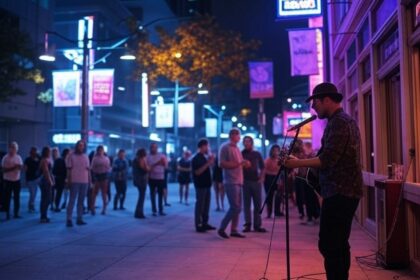
Music, a primary cultural cornerstone, plays a transformative role in fostering creativity, collaboration, and risk-taking — traits essential for entrepreneurship and innovation. A 2019 study by the World Economic Forum underscored the symbiotic relationship between the arts and innovation, emphasizing that creativity spurred by artistic engagement improves problem-solving and decision-making. Similarly, the National Endowment for the Arts has highlighted how arts participation correlates with entrepreneurial ventures, noting higher rates of patent filings and business creation among individuals with artistic backgrounds.
“People’s arts participation, as they self-define it, is constantly changing. Through our arts participation strategies, we all become entrepreneurs—conceptualizing new worlds of artistic possibility, defined by the people and for the people.” – Johanna K. Taylor, Associate Professor, The Design School, Arizona State University, with National Endowment for the Arts
Music’s unique ability to cultivate mental agility has been noted by luminaries in both the arts and business. Steve Jobs famously credited Bob Dylan and The Beatles as major influences on his philosophy, stating in a 1995 interview, “Creativity is just connecting things. When you ask creative people how they did something, they feel a little guilty because they didn’t really do it, they just saw something.” This insight reflects music’s power to inspire lateral thinking—finding connections between seemingly unrelated concepts, an essential element of innovation.
‘The world is not static, but constantly changing; indeed, there is always the potential for a variety of future worlds to spring from the ideas and actions of today,’ leading entrepreneurship scholar Saras Sarasvathy (2012). Worldmaking. In A. Corbett and J.A. Katz (Eds.), Entrepreneurial Action (Advances in Entrepreneurship, Firm Emergence and Growth, Vol. 14, pp. 1-24) Bingley: Emerald Group Publishing Limited. ‘The arts are central to this notion of worldmaking. They invite us to consider new realities and test many possible futures through how we choose to participate, experience, create, and perform.’
Article Highlights
Music in Shaping Industry and Innovation
Detroit and the Auto Industry
Detroit’s influence on the music industry, particularly through Motown Records, is inseparable from its role as the birthplace of modern automotive manufacturing. Motown, founded by Berry Gordy in 1959, was a trailblazer in both music and business. Gordy’s assembly-line approach to producing music mirrored the innovations pioneered by Henry Ford. Gordy’s philosophy, “Don’t look at where you are, look at where you want to be,” encapsulated the city’s industrious spirit and the boldness required to transform ideas into global success stories.
Motown artists like Stevie Wonder and The Supremes not only revolutionized music but also demonstrated the scalability of creative enterprises, providing a blueprint for industries far beyond entertainment. The synergy between music and the auto industry shaped Detroit’s global identity as a city of both creative and industrial ingenuity.
New York and the Financial Industry
In New York City, the frenetic energy of jazz mirrored the high-octane pace of Wall Street. Jazz legends like Duke Ellington and Charlie Parker cultivated an ethos of improvisation and adaptability, qualities that resonate with financial innovation. George Wein, founder of the Newport Jazz Festival, once remarked, “Jazz is the sound of surprise.” This sense of surprise parallels the calculated risks and quick decision-making that characterize the financial sector.
New York’s financial industry thrived on the dynamism of the city’s cultural fabric. Jazz clubs became networking hubs, drawing professionals who found inspiration in the art form’s complexity and unpredictability. The interplay between New York’s cultural and economic sectors has been instrumental in solidifying its reputation as a global capital of innovation.
Silicon Valley and Haight-Ashbury
The countercultural revolution of Haight-Ashbury in San Francisco during the 1960s laid the ideological groundwork for Silicon Valley’s tech boom. Bands like Jefferson Airplane and The Grateful Dead championed an ethos of experimentation and defiance of norms. Steve Wozniak, co-founder of Apple, drew parallels between this cultural moment and the spirit of technological innovation, echoing Sarasvathy, “Everything we did we were setting the tone for the world.”
The countercultural movement’s embrace of communal living and open collaboration foreshadowed the Valley’s startup ecosystem, where knowledge sharing and partnerships are key. The rebellious energy of Haight-Ashbury echoed in the willingness of tech pioneers to take risks and disrupt industries. By the way, the origin of the iPod? Wozniak, “My first transistor radio was the heart of my gadget love today. It fit in my hand and brought me a world of music 24 / 7.”
More Recently, Let’s Take a Look at Why Austin Emerged
Austin’s richer musical history dates back to the early 20th century, but its transformation into a creative hub began in earnest in the 1960s and 70s. During this period, country and blues artists such as Willie Nelson, Waylon Jennings, and Stevie Ray Vaughan emerged as icons of Austin’s music scene. Willie Nelson’s decision to return to Texas in the early 1970s after leaving Nashville signaled a shift in Austin’s identity as a haven for artists seeking authenticity over commercialization. As Nelson put it, “In Austin, I could just be Willie, and the music could be what it needed to be.”
The Armadillo World Headquarters, opened in 1970, became a cultural landmark and a melting pot for genres ranging from rock to progressive country. It was here that Austin’s unique blend of musical influences—rooted in Texas traditions yet open to innovation—gained national attention. As Eddie Wilson, founder of the venue, alluded, ‘The Armadillo was about letting the music be itself. No pretenses.’
By the 1980s, Austin’s reputation as a music city was firmly established, bolstered by venues like Antone’s, which hosted legends such as B.B. King and Muddy Waters. At the same time, Austin was becoming a hub for technological innovation. The founding of Dell in 1984 marked the beginning of the city’s ascent as a tech powerhouse, showing a unique parallel between Austin’s creative and entrepreneurial energies and notice, the approach these artists had toward music reflect the personality and entrepreneurial spirit of Austin today
From 1995 onward, and I want to pause there to make sure your attention is keyed into the fact that 1995 is about the time that the internet reached broad, consumer appeal, from then on Austin cemented its status as the “Live Music Capital of the World.” Festivals like South by Southwest (SXSW), which began in 1987, became global stages for both artists and innovators, “Austin’s magic lies in its ability to bring people together from different disciplines to create something bigger than themselves,” noted Hugh Forrest, SXSW’s Chief Programming Officer.
The period also saw the rise of artists like Spoon and Shakey Graves, alongside challenges for the industry thanks to that pivot of our economy to the internet. The shift to streaming revenue models put immense pressure on musicians, as did Austin’s escalating cost of living. The convergence of these issues spurred the creation of organizations like Black Fret, now Sonic Guild, dedicated to sustaining the city’s musical ecosystem.
Cities Leveraging Music for Growth: Lessons from Manchester and Beyond
Cities like Manchester, England, have successfully tied music to economic development. Manchester’s storied history, from Joy Division to The Stone Roses, has become a cornerstone of its urban branding. The city actively integrates music into its economic strategy, hosting events like Manchester International Festival and Beyond the Music, recently founded by Oli Wilson with Sarah Pearson, to attract global attention. Other cities, including Nashville, Berlin, and Melbourne, follow similar models, using music to foster tourism and community, or course, but more so, to inspire entrepreneurship and local innovation.
“It is more than a city, it’s kind of a way of thinking, it represents a way of life, a philosophy. It’s about economic progress and social progress going together hand-in-hand. Manchester has always been fighting for a better world. Hundreds of years ago it was home of the Suffragettes who fought and won votes for women not just in our country but all over the world.” Manchester Mayor, Andy Burnham at SXSW 2023. “Go back to the American Civil War when Manchester was the cotton capital of the world, it’s the place where ordinary people, workers in those cotton mills, voted that they would not handle slave picked cotton. Think about that, 160 years ago, the working people of Manchester said Black Lives Matter.”
So, I brought up Sonic Guild for reasons that will become apparent. I’ve covered innovation in music by way of Austin before, but we’re nearing 10 years since and much has changed. Exemplifying the entrepreneurial adaptability needed to navigate today’s economic landscape, the patrons of local music initially founded as Black Fret, rebranded to reflect a broader, more inclusive mission of supporting extraordinary new music.
“There are two opposing forces turning the Austin music scene into a crucible with the potential to produce some of the top acts in the country, but only the strongest will survive it. On one hand, Austin’s reputation as a Music city continues to grow and that is attracting more and more of the best artists in the country. So the quality of music in Austin gets better every year, producing bands like the Shakey Graves, the Black Pumas, Dayglo, Rob Baird, and many others. But at the same time, the financial pressures on these artists also continue to grow and may be getting close to a breaking point,” referring to that that affordability challenge I mentioned, Greg Carter, the Operations Director of Sonic Guild Austin, shared some perspective. “For years, streaming has been the primary delivery route for music, so the only way bands can make money is to play live. And with thousands of musicians competing for limited performance slots, the competition is fierce and the pay is low. But Austin’s cost of living continues to climb. What was once seen as one of the most affordable cities for Artists is now rivaling the cost of Cities on the East and West coasts.”
Clearly, a need for innovation thanks to the inspiration of the art. Not surprisingly, Sonic Guild and all non-profits are largely impacted by broader economic forces. During the pandemic when people had lots of time on their hands and few options to spend their money, Sonic Guild had our largest membership base in history and distributed record dollar amounts to music economies throughout the United States. But as the “real” economy has contracted (or struggled with the emergence of AI or the booming expenses) over the past few years, support from members, donors, and sponsors has contracted. While such challenges stifle many philanthropies, it’s in the convergence of music with entrepreneurship that such organizations evolve; hard times make you evaluate your organization, cut the fat, and determine how to maximize your value proposition to all your stakeholders – if I were to call it a startup, I might say pivot. Sonic Guild is going through an evolution based on those learnings and is now in a position to better serve our artists and music businesses, deliver better experiences and value to a broader set of members in different segments, and to enable sponsors to better justify their support based on returns in branding, customer acquisition, and employee attraction & retention.
A glimpse behind their curtain?
- More public engagement to build community and provide broader visibility to Sonic Guild artists. For example, the Love Your Music fest at SXSW is open to the public and has been attended by thousands of people over the past few years. This year the Sonic Guild Ball (coming up) opens to the public as well.
- Introducing three membership tiers to expand the membership base and better tailor the experience and cost.
- Expanding their artist programs to better provide the resources they need to treat their band as a small business and take best advantage of the financial grant to expand their audience and advance their careers.
Sonic Guild’s expansion to cities like Seattle, Colorado, and Northwest Arkansas demonstrates its broader ambition. “The ultimate goal of expanding to cities across the country is to provide meaningful touring support for Sonic Guild bands. It can be very difficult for even very successful local bands to build audiences and create financially successful tours in other cities. Imagine being able to plan a tour that includes opening for popular Sonic Guild bands in all the cities going to and from your anchor gig thousands of miles away,” added Carter. By establishing chapters nationwide, the organization creates opportunities for local musicians to connect with broader audiences, enhancing their ability to build sustainable careers. These chapters also serve as catalysts for innovation, showcasing how music can drive economic and cultural growth.
Imagine, founders and venture capitalists, if lessons are to be learned, we should be looking to Arkansas, Colorado, and Washington for the next big hub of innovation, thanks to the music that leads the way.
If you happen to be in Central Texas, this year the Sonic Guild Ball will be held in just a few days, on Jan 18th at the Long Center. And for the first time ever, it’s open to the public. An amazing night of music and celebration giving away $150,000 in grants to musicians while 10 artists perform. I want you to get involved more in Austin Music as it’s the fuel behind Austin Startups, so here’s a 20% discount on tickets.
Cities that embrace the arts, especially music, are uniquely positioned to foster entrepreneurship, innovation, and sustainable economic growth. Music is more than entertainment; it’s a driver of mental agility, collaboration, and creative problem-solving—traits that propel industries and define entrepreneurial success. From Detroit’s Motown to Austin’s “Live Music Capital of the World” ethos, history shows us how cultural investment seeds transformative economic identities. Today, the work of organizations like Sonic Guild highlights how aligning music with entrepreneurship can overcome challenges like affordability and shifting revenue models, ensuring both artists and local economies thrive. City leaders, economic developers, and innovators must recognize the value of weaving the arts into their growth strategies. Doing so isn’t just a nod to culture; it’s an investment in a future where creativity, community, and innovation coalesce into boundless opportunity. Let us commit to building cities that, like the music we champion, inspire bold visions and enduring legacies.

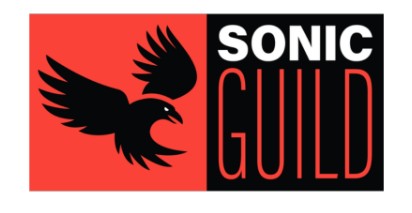


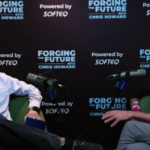
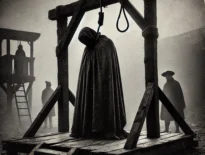
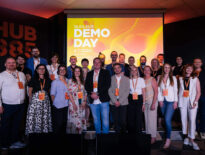
Great work and effort. Music matters
Paul O’Brien this is spot on! You’ve captured the vital connection between arts, music, and urban revival.
Manchester’s transformation in the 1980s and 1990s serves as a masterclass in how a strong creative class can revolutionize a city. The visionary partnership of Factory Records’ Tony Wilson and designer Peter Saville helped forge a distinctive cultural identity through post-punk, alternative dance, and acid house movements. Watch 24 Hour Party People and you’ll see how it happened.
As you stated, the city became an incubator for groundbreaking artists – from Joy Division and New Order to The Smiths, morphing into the era of “Madchester” with Happy Mondays, Stone Roses, Oasis and The Chemical Brothers, right through to modern acts like The 1975. What’s amazing is this rich musical legacy, combined with Manchester’s strong classical arts scene and sports tradition, laid the groundwork for its remarkable transformation. What was once a declining industrial center emerged as a vibrant university town and tech hub, attracting R&D investment and knowledge-intensive industries.
This evolution demonstrates how a thriving arts scene doesn’t just enrich culture – it catalyzes economic reinvention
Don’t sleep on the incredible work that Elizabeth Cawein is spearheading with Music Export Memphis! She’s building upon Memphis’ incredible heritage as the home of the blues and the birthplace of Rock-n-Roll and reintroducing Memphis music to the rest of the world.
Her efforts and approach to provide resources, create opportunity and promote Memphis music as an economic driver for tourism is truly unique and has become a model for other cities looking to embrace music as a cultural capstone. You should look into the program!!
Wayne Leeloy, Elizabeth Cawein is a badass !!
Great article Paul. The importance of the arts in a community is often forgotten or pushed aside. Particularly today as communities are confronted with issues such as homelessness. The “Live Music Capitol” title is definitely at stake with the Unaffordable Housing in Austin. The changing landscape in Austin has also seen the closing of Live Venues so there are fewer opportunities to play live.
The situation is at a point where a partnership is needed between local government and Non Profit Organizations to create an Artist Village with affordable housing.
Dennis Robinson in fairness, I’m not sure a partnership between government and non-profit is the solution here, because that has been tried. In my years in Austin, I’ve seen a half dozen attempts to start an artist village, and an underlying problem persists: property owners will always maximize / sell their property for the greatest value possible.
Without strong leadership in the City, to rezone Austin and fight property owner influence, and/or substantial support from the private sector (donors), such a thing just can’t get sufficient traction here because its future is uncertain.
What Austin has done is close those venues, fail to promote artists (or teach them how), stifled label/studio existence, and disdained tech… all of which simply means musicians can’t make it here. Without drastic change in leadership or substantially more patronage, that can’t change. Sadly.
Wayne Leeloy oh, no sleeping on it! Only so much room on a webpage for words written
Seriously, what I was hoping to accomplish is more of the correlation between music and innovation/entrepreneurship, than simply exploring where a music scene struggles or thrives.
No question, at all, that Memphis is among the more exceptional music cities. When I add to the equation though my part, it is a city that COULD thrive with startups but isn’t. I’d like to be involved to fix that… the reasons innovation languishes there (compared to say, Austin or Silicon Valley), isn’t the lack of this creative side, its other economic considerations exposed in the work I do.
To start, music needs to embrace tech much more and/or the city needs to heavily support entrepreneurs.
Paul O’Brien
One of my favourite quotes that I use with my coaching clients is Gerry Garcia’s
“You do not merely want to be condidered the best of the best. You want to be considered the only ones who do what you do” in Tom Peters Re-imagine p158
Aisha Ejaz, MBA Jody Teiche Susan Mravca Rebecca Bonnington John McAllister
Spencer B. Hodgetts so cool. I remember Cool Brittania during the Blair era with Blur, Pulp, Oasis plus artists like Damien Hirst and Tracey Eminem. When a nation thrives, its creativity thrives too.
Spencer B. Hodgetts there is a very similar notion in startup work and venture capital – You want to be a monopoly! You need to find the niche that you can fix, maintain, and in which you can defend a competitive advantage. If you can’t do that, you have nothing because you’re merely the same as everything else.
Right On Paul! Great insight and appreciate this push to support Austin’s Music Capital of the World musicians
Baron Wiley this is a great push for the arts and music in the heart of City of Boerne and Visit Boerne Das GreenHaus
This is the story of so many of our Texas Hill Country towns.
Nice article Paul, thanks for writing. I’m at the intersection of this very subject – music and tech. How can the city keep an equal value for both? My argument would be building the entertainment industry; we need big time publishers, labels, tour support, movie studios, etc. Like LA/Nashville/NYC, but innovative in the way SF experiments with new business models. There’s an opportunity here for this kind of conscious evolution.
Jonathan Bolton Data is telling us that having robust inventory of labels and publishing doesn’t equate to a thriving local scene. Austin and Minneapolis outpaced Nashville on retaining local industry resources revenue without having a lot of that traditional music infrastructure.
Don Pitts I wonder if there are multiple ways to define thriving. Is the date you’re deferring to % or absolute? I mean to say, retaining less of a watermelon may be better long term than more of a grape, even if there are other problems introduced (affordability, for example). The other point I think about on Austin vs Nashville is export: not only for artists, but industry services. I saw some reports on both of these cities recently, let me see if I can look that up…
Thanks for the mention and the love Wayne Leeloy (and Don Pitts!) – Paul O’Brien, I might respectfully disagree on a few points in your assessment of Memphis 🙂 Be sure to let me know if you find yourself this way!
Elizabeth Cawein my assessment of Memphis in music? It’s not exceptional? Or do you mean that it isn’t thriving for startups?
The latter is my work, and we’ve all had a solid eye on Memphis for 15 years. I’d love your take; generally, it’s compared to Austin because that’s a closer parallel than Silicon Valley.
That, while benefiting from the city’s strengths in logistics, healthcare, and music, it remains stifled because of a lack of robust funding, major tech, and integration with academia. Granted, funding doesn’t precede, it follows, but that’s why the lack of it is a signal of *other* challenges. Memphis has a more regional focus, with Start Co. and EPIcenter fostering local innovation, but it lacks density of investors, experienced founders, and accelerators. Memphis’ cost of living and tight-knit community can be strengths but are also challenges, and non profits aren’t the solution in innovation, which is what Memphis favors so far.
Don’t misunderstand me, this isn’t negativity. I’m an economist and marketer; my work is empirically figuring out what is lacking so we can overcome that. You might enjoy: https://www.forbes.com/sites/cheriehu/2017/02/26/from-austin-to-memphis-what-it-takes-to-build-a-music-tech-city/
Good morning, Jonathan Bolton, good thread started. Don Pitts has been studying these markets for years, and he’s exceptional at the assessment, so before adding my own, I’d reinforce his perspective. labels and publishing != robust local scene.
“My argument would be building the entertainment industry; we need big time publishers, labels, tour support, movie studios, etc. Like LA/Nashville/NYC, but innovative in the way SF experiments with new business models.”
Yes… but most fail because:
1. They focus too locally and only hire locally
2. They don’t actually bridge the two
3. They overemphasize a piece (such as labels)
4. They don’t invest in marketing
5. They don’t promote it well, so no one knows
6. They are nepotistic or insular
Notice, SF experiments with new business models but it still sucks as a music or even film industry (despite having some major studios). LA thrives in music and film and yet technology is crushing it and no one there knows what they’re doing (about it).
I referred to marketing and think of that as addition to where we should hold tech in our minds – neither is a vertical and neither is something you can do, when you want. BOTH are horizontals – dependencies in ALL business.
It matters in this case in particular because Music generally does marketing poorly (not promotions by the way, marketing)
1. Labels do it really well for their larger artists or catalog
2. Producers are terrible at it
3. Musicians mostly suck at it
4. Publishers are okay at it
5. Venues are pretty bad
6. Managers are old fashioned
This is why if someone is signed, or a major studio has a film, they seem to go all in on the market. Everything else is struggling — and the studios (“investors”) don’t care that everything else is struggling because not being able to do marketing well is a *disqualifier* (they lose nothing by disregarding you).
Now add tech. It’s a huge mistake to think of tech as a specific industry. Tech is ubiquitous and either disrupts, replaces, or makes more efficient, everything. So, our creative and arts industries struggle because most don’t consider it so.
We can say streaming is tech and that’s disrupted our industries. But that’s missing the forest for the trees. Tech completely changed how accounting, ticketing, merch sales, and… marketing and advertising work!
So, without your goal, and my work, and Don’s work, and by the way, Greg Carter (who I talked with and wrote about), the arts will fail.
Jonathan Bolton yes there are multiple ways to define thriving. The challenge with Nashville is that it’s actually three distinct music ecosystems and they’re not necessarily in sync. The local independent music scene is struggling.
Paul O’Brien 100%….it’s always been so frustrating that people over complicate all this and ignore the obvious needs. I’ve always said that the most important ingredient of a music strategy is “discipline”.
Wonderful article about the past, present, and future of Austin’s music scene and opportunities for growth.
Hi Paul! Long time – this caught my eye.. as you can imagine. Would love to reconnect sometime soon.
Mark Epstein out of town for a bit so let’s look to week after next? Dm me, so I don’t miss it, I’m officially now distracted
Paul O’Brien will do!
Great observation, Paul & good read! Thanks for sharing!
So great to see all of you engaging with Paul’s great piece. The intersection of art, entrepreneurship, and technology is clear in lots of these cities and certainly could be the catalyst for explosive growth and renewed success for the Music Industry in Austin. I have been a technology and business leader for 30 years and have watched Austin’s economy and culture evolve and grow over the past 30 years. We have been worried about the music scene for decades as the cost of living has skyrocketed. That is not just hitting the musicians, but also the venues, producers, sound and light engineers, and everyone else who works in the music industry. And yet, the industry continues to grow in numbers of people participating – albeit right on the ragged edge of survival. In my opinion, the answer is not to try to save everyone and everything. That is not how innovation and capitalism works. Rather, as Paul points out, we should act like investors and identify the talent and new business models and technology that have the best likelihood of not just succeeding but thriving if given the financial and career support of seasoned mentors. That is what Sonic Guild is trying to do. I welcome you to join us as a member or volunteer and help us continue evolve this model to have an even bigger impact in the next decade: sonicguild.org
So glad I read down to the Easter egg of Sonic Guild ball. And find your hypothesis insightful. Music and innovation certainly do coincide
Music was such a kickstarter for the decades long economic growth of Austin. One thing I noticed about Austin over the decades is having workplaces offer flexible scheduling. Your indie musicians, DJs, dancers, and production artists need to take time off from the day job to go on tour. This little detail is often missed in the economic development discussions.
Cheers Leah. There is a lot we’re unaware of going on in Austin; I think, a reflection of society’s poor grasp of marketing and journalists/authors lack of fully comprehending the internet – but that’s an article for another day!
Yep. Missed Memphis on that post.
Cheers Leah. There is a lot we’re unaware of going on in Austin; I think, a reflection of society’s poor grasp of marketing and journalists/authors lack of fully comprehending the internet – but that’s an article for another day!
Great article Paul O’Brien. Definitely have felt the music ecosystem here in Austin has needed intentional and strategically sound support for the music market Austin claims as well as the surrounding businesses/markets bolstered and inspired by it. Your framing I think is very helpful. I’m glad to have organizations like Sonic Guild and the like in town to serve the art makers work, which as you noted and displayed in your examples is a key cornerstone for overall thriving of the cities they call home. I am hopeful that there may be a path forward which may bridge these gaps to prevent total decline due to cost of living etc. I think the alternative for everyone is not just the loss of something people may enjoy but along with it a key catalyst for maintaining or even increasing the thriving of all market sectors in our city.
Look forward to seeing more on the topic ahead. Thanks also to Don, Jonathan and Amelia for their input.
Rob Campanell ?